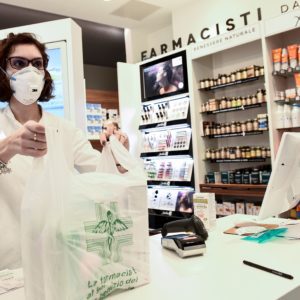Impact of Coronavirus Pandemic on Healthcare Facilities
The coronavirus pandemic has significantly affected the healthcare system proving a moment of truth for the system across the globe. The disease continues to cause deaths, there are new infections and its effects are spreading from the system to be equally devastating economically. COVID-19 has changed the way healthcare services are being delivered across the globe.

Its effects range from a delay in the supply of healthcare products, the inability for patients to access essential healthcare especially in hard hit areas, absenteeism and shortage of staff and lack or fluctuations in healthcare facilities occupancy.
Global Healthcare Service Disruptions
Since the declaration of COVID-19 as a global pandemic, healthcare services have been disrupted either partially or completely in different countries. As such, the treatment of diseases such as diabetes, cancer and cardiovascular has almost been a major challenge. This can be attributed to concerns surrounding hospital capacity, social distancing guidelines put in place and the fears of spreading or contracting the disease within a healthcare facility.
During the pandemic, there are facilities that have postponed or cancelled scheduled elective surgeries. This is a downward effect of the pandemic in terms of health cost, short term and it is expected to be a long term effect. Even with Last-Mile Delivery software/solutions/system/apps, patients still postpone such treatments and could result in more costly treatments once social distancing measures and stay at home guidelines are relaxed.
Screening services including public screening programmes have also been postponed in more than 50 per cent of the affected countries. It is a clear effect of the pandemic due to interrupted transport services, cancellation of mass gatherings and fears surrounding the spread of the virus. With discontinued healthcare services, there are concerns over the risk of deaths from the terminal and communicable diseases.
Even as governments struggle to ensure steady supplies of medicine thanks to the availability of pharmacy delivery solutions, the level of care, screening and treatment that a patient gets at hospital facility is not the same as that provided in the home-based environment.
Distribution of Medical Supplies
COVID 19 pandemic has acutely affected the smooth supply of medical supplies and drugs across different parts of the globe. Before the pandemic:
Real-Time Delivery Tracking solutions offered an easy delivery of essential drugs and healthcare products to patients. However, as the disease spread globally, there have been challenges in ensuring smooth distribution and deliveries due to lockdown and other safety measures that have been put in place by many countries.
Undoubtedly, amid the pandemic, healthcare facilities still need to provide the best healthcare services for patients. Whether a patient needs medicine delivery, outpatient care, home-based care, emergency care or urgent care, healthcare facilities still need to ensure the safe delivery of these services. This is why on-demand delivery services and Telecare services have been made easily accessible to patients in various situations and settings. This way you can grow your delivery business from the COVID-19.While developed states can easily embrace such technologies, there is still a challenge in countries that are still struggling to build their economies.
Increased the Need to Optimize Supply Chains and Telehealth
The pandemic has equally accelerated the need for hospital facilities and healthcare service providers to fully optimize supply chains. It is a crucial step spanning across the major healthcare sectors including medical devices, pharmaceuticals, medical imaging, health care IT and Vitro diagnostics among others. It is safe to say that even though the world was embracing advanced medical technologies before the pandemic, COVID-19 has accelerated the need to optimize the best supply chains and telehealth technologies.
Medicine delivery solutions are one of the best strategies that help service providers to ensure patients get medicine on time. In different settings, patients can seek clarifications on trial supplies among other related services via on-demand pharmacy delivery solutions.
Telehealth, on the other hand, enhances virtual consultations and clinical trials. This means despite the spatial distance, patients can consult with doctors reducing the impact of social isolation as well as quarantine. Without a doubt, the pandemic has accelerated the need to embrace such technologies to prevent negative impacts of social distancing. It also enables healthcare facilities to focus more on quality remote patient engagement strategies but at a higher cost.
Some of the strategies that governments have been forced to embrace within the shortest time include:
- Telehealth designed for enhanced patient care, remotely.
- Virtual rehabilitation using AR/VR technology.
- Virtual assistants including chatbots that help patients to benefit from intelligent systems when it comes to consultations, alerts and triage essentials among other clinical observations.
Financial Effects
The financial effects of COVID-19 cannot be ignored. From the need to ensure healthcare service providers stay safe and free from infections, reduce the death toll, patients get the right medicine, ensuring hospitals get and maintain the right hospital beds for patients, PPEs, ventilators or medical equipment and supplies, using the most efficient online medicine delivery system, and much more means having enough finances.
Since the outbreak, the prices and the cost of accessing such services and supplies have increased significantly, putting a financial constraint on healthcare facilities across the globe. Currently, health systems and hospitals are working hard to get finances to develop the right solutions to address and meet the needs of staff and patients.
For pharmaceutical companies, advancements in same day medicine delivery solutions would also mean making necessary adjustments to counter short term and long term effects of COVID-19. In the light of prevailing disruptions, it is vital for pharmaceutical companies to adopt models that enhances easy management of the pandemic. Clearly, the effects of the disease have for the first time in the history of pandemics, nearly shut down the global economy, painfully demonstrating the need to have the right measures in place, right from healthcare services to delivery of medical supplies.









